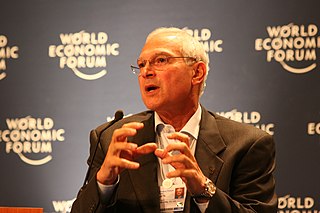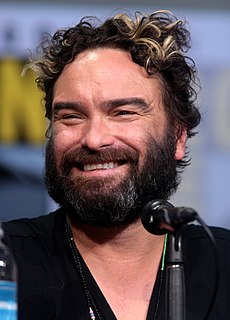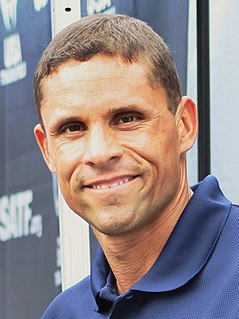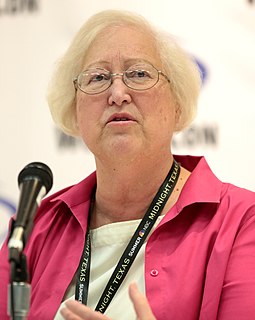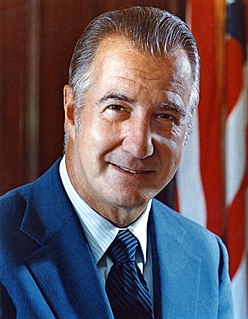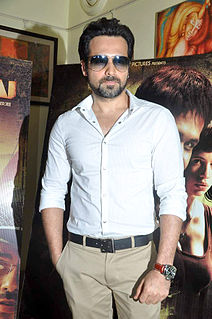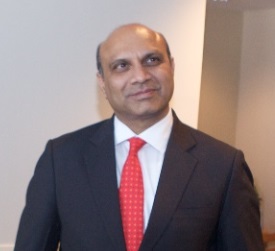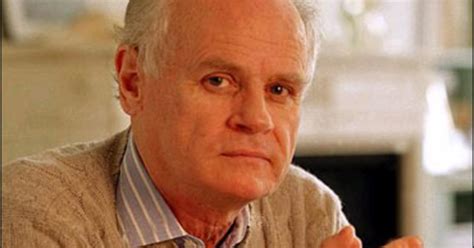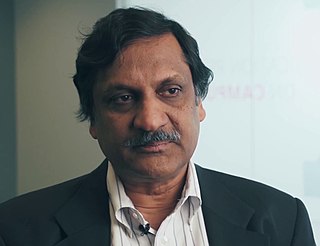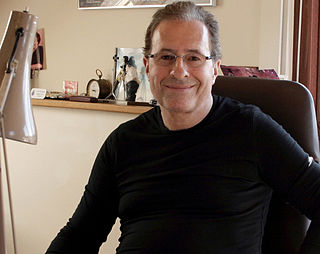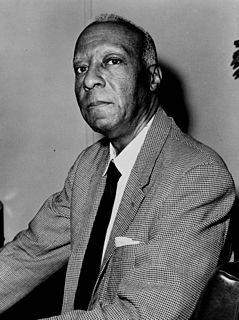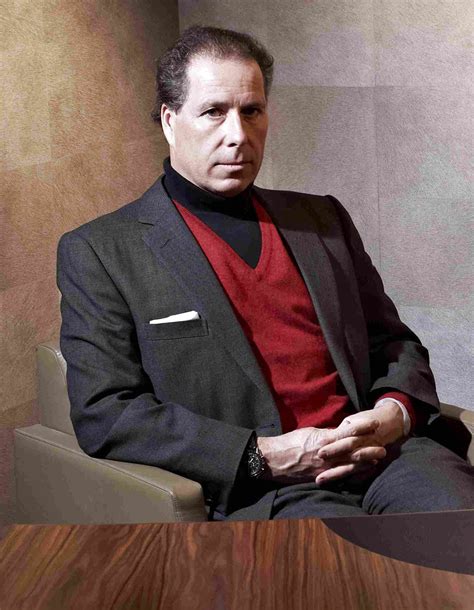Top 1127 Colleges And Universities Quotes & Sayings - Page 15
Explore popular Colleges And Universities quotes.
Last updated on April 21, 2025.
No individual and no generation has had enough personal experience to ignore the vast experience of the human race that is called history. Yet most of our schools and colleges today pay little attention to history. And many of our current policies repeat mistakes that were made, time and again, in the past with disastrous results.
Shared governance is often the critical element that is missing in Asian universities, no matter how talented the faculty may be. Either it is ministries of education that are trying to run things, or in private institutions - those who control the funds. Neither group knows much about teaching and research.
All over the world, as governments retreat from their traditional duty to foster the common good and reconceive of themselves as mere managers of national economies, universities have been coming under pressure to turn themselves into training schools equipping young people with the skills required by a modern economy.
Making the future and the road to the future wealth lies in the youth of the present and future, and rebuilding the nation's institutions based on knowledgeable scientific foundations that require promising human capacities derived from college graduates. Universities are the makers of men, we are proud of their role and of the efforts of their administrators.
A majority of students who come into community colleges are still stuck at high school level or remedial math. And when they take it in college, they still don't pass it. So the Carnegie Foundation got together and created two accelerated courses that focus on real-world applications of numbers like for health, for civics, for personal finance - concepts that you and I use every single day.
Fifty years ago, great schools like the University of California and the City University of New York - as well as many state colleges - were tuition free. Today college is unaffordable for many working class families. For the sake of our economy and millions of Americans, we must make higher education more affordable.
All schools, all colleges, have two great functions: to confer, and to conceal, valuable knowledge. The theological knowledge which they conceal cannot justly be regarded as less valuable than that which they reveal. That is, when a man is buying a basket of strawberries it can profit him to know that the bottom half of it is rotten.
We have the leading companies and the leading sectors in the advanced industrial world, we have an incredibly dynamic society, and we have high levels of entrepreneurship. And we have the best universities in the world. ... We also have impeccable credit. What we don't have is a political system that can take the simple measures to deal with our short-term deficit.
I didn't get a ton of interest from colleges in baseball and football, but I was outstanding in track and had the sense that this would be my meal ticket... Track was a sport where I saw immediate improvement, and I had a lot of good support behind me... and the coaches had a lot of experience and pushed me in that direction for sure.
So when I appear as a kind of shamanistic figure, or allude to it, I do it to stress my belief in other priorities and the need to come up with a completely different plan for working with substances. For instance, in places like universities, where everyone speaks so rationally, it is necessary for a kind of enchanter to appear.
University, as institutions, pre-date the information economy by many centuries and are not for-profit cultural entities, whose reason of existence (purportedly) is to discover truth, codify it through techniques of scholarship, and then teach it. Universities are meant to pass the torch of civilization not just download data into student skulls.
The effects of MFA programs, and the rise of creative writing instruction more generally, are far more diffuse than people think. Even if you're a writer who has avoided institutions your whole life, you're still going to be reading a lot of writers who have MFAs, and are affiliated with universities.
I was on a walking tour of Oxford colleges once with a group of bored and unimpressable tourists. They yawned at Balliol's quad, T.E. Lawrence's and Churchill's portraits, and the blackboard Einstein wrote his E=mc2 on. Then the tour guide said, 'And this is the Bridge of Sighs, where Lord Peter proposed (in Latin) to Harriet,' and everyone suddenly came to life and began snapping pictures. Such is the power of books.
The era of appeasement must come to an end. The political and social demands that dissidents are making of the universities do not flow from sound basic educational criteria, but from strategic considerations on how to radicalize the student body, polarize the campus and extend the privileged enclaves of student power.
I was born in Patterson, New Jersey, and raised pretty much all around the country. My family tended to move from place to place following economic prospects and jobs and looking for new opportunities, so we changed schools, colleges, grade schools, high schools every 6 months to a year - depending on the breaks.
NC LIVE has the potential to give citizens across North Carolina immediate access to the rich array of information resources housed by the libraries on UNC's 16 campuses. It will allow unprecedented collaboration and sharing of resources among sister UNC institutions, the community colleges, and the state's public libraries.
Young women at our elite colleges are among the safest, most privileged and most empowered of any group on the planet. Yet, from the moment they get to campus - and now, even earlier - an endless stream of propaganda tells them otherwise. They are offered safe spaces and healing circles to help them cope with the ravages of a phantom patriarchy.
Charlottesville is a quiet town with friendly people, good schools, lots of churches, parks, and a bustling, growing community that more or less revolves around one of the country's great public universities. Volunteerism is rampant, and dozens of nonprofits hustle about, solving problems and helping those in need.
I've seen young men in college going into the NFL and then bite the cheese that's in the trap. They'll throw you a pair of Jordans or a moneybag for their services. It's in that moment where most compromise. This business is unforgivable, and you got a bunch of sharks out there. It's mind boggling that universities don't prepare athletes for what they're going to experience.
For interns at 'The Weekly Standard' or 'National Review,' where the martial instinct finds its most insistent voice, what Robert Kagan calls the military 'career path' is not widely seen as a plausible future. Pulling a trigger is what Jose, Tyrone, and Bubba do, not early admission students at the better private universities.
Augustine says that you don't understand a nation by the throw weight of its military or the strength of its research universities or the size of its population, but by looking at what it loves in common. To assess a nation, you look at the health and strength of its ideals. And there's no question that the common love in America is freedom.
I was a gay kid in high school in the late '90s, and I was in theater club. I was never a thespian. I was much more of a lighting guy or a backstage guy. Because I wanted to do something easy for the rest of my life, I thought, "Maybe I'll go and apply to colleges that specialize in theater set design. I'll do that. That's what I want to do". With theater, really, I'd be around the gays.
The very concept of an Iranian university is an oxymoron. There are no free and open places of learning in that repressive theocracy. Dissenters are not given tenure; they are murdered, after first being tortured. Blasphemy, which is broadly defined, is punished. Gays are not only excluded from Iranian universities, but are imprisoned and killed.
While the universities are increasingly corporatized and militarized, their governing structures are becoming more authoritarian, faculty are being devalued as public intellectuals, students are viewed as clients, academic fields are treated as economic domains for providing credentials, and work place skills, and academic freedom is under assault.
There are hundreds and thousands of young Americans who cannot or will not receive an education, because in order to get an education, you have to spend money. Students come out of college and universities with unbelievable debt. It's not right, it's not fair, and it's not just, in a society such as ours. And those dollars are not going to the teachers.
Among the numerous requisites that must concur to complete an author, few are of more importance than an early entrance into the living world. The seed of knowledge may be planted in solitude, but must be cultivated in public. Argumentation may be taught in colleges, and theories formed in retirement; but the artifice of embellishment and the powers of attraction can be gained only by a general converse.
In the 1970s, what I, as a young foreign student studying in the United States, found most dynamic, exciting and impressive about this country is what much of the world continues to value most about the U.S. today: its open intellectual culture, its great universities, its capacity for discovery and innovation.
Equality is the heart and essence of democracy, freedom, and justice, equality of opportunity in industry, in labor unions, schools and colleges, government, politics, and before the law. There must be no dual standards of justice, no dual rights, privileges, duties, or responsibilities of citizenship. No dual forms of freedom.





